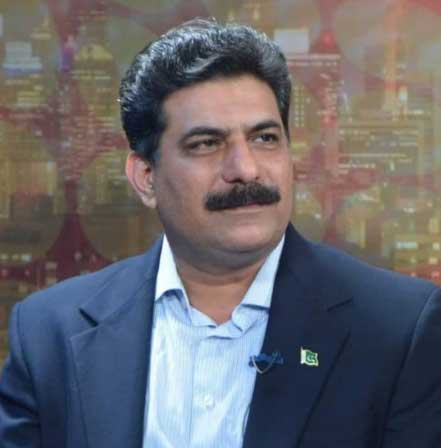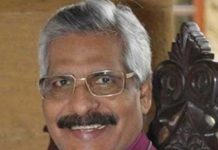The defective tax system has been responsible for tax evasion, increase in no filers and massive corruption and powers granted to tax collectors. Issuing of SRO’s to give relief to selected businessman and making policies suiting to elite convenience has remained distinguished feature of FBR. To bring efficiency in FBR in the year 2002 care was initiated as part of its campaign to revamp the federal tax collection machinery. To achieve this goal FBR has simplified IT Ordinance 2001, has established large tax-payer units (LTU) at Lahore and Karachi, medium taxpayer units at Peshawar, Rawalpindi, Lahore, Quetta and Karachi. These reforms also include STARR (Sales Tax Automated Refund Repositioning). These reforms have been introduced on the recommendations of the IMF. Frankly speaking LTU and MTU are to distinguish between a VIP and VOP (very ordinary person) and nothing else. In actual practice people, who come under the fold of LTU and MTU, were already getting better treatment at the hands of the tax collectors for obvious reasons. But the main purpose of establishing LTU and MTU was to root out the corruption and it was to be ensured that it presented a corruption-free unit. Have we succeeded? The right answer is no. According to the tax advisers, who have their work done in LTU and MTU, nothing has changed. The pseudo-reforms speak volume of themselves. It was superficial spending of money to build beautiful buildings with the latest electronic gadgets. It has no relationship with the corruption. rooting out corruption and bringing competency without changing the mindset would remain a dream that would never be fulfilled. There is no change in the system of posting of officers, the selection is based on pick and choose, likes and dislikes. People continue serving at one place, be it customs or income tax. To have break in service at the same station they manage their posting to other organizations like FIA, PIA, Pakistan Steel, Export Promotion Bureau, WAPDA, EOBI, NIPA, foreign posting, and different departments of provincial headquarters and in capital the CDA and different ministries like commerce, labour etc. Tax reform without observing posting criterion and duration of various categories of officers is the key factor that has always been overlooked. The biggest problem of our tax collectors has been the tax collection system. In spite of Federal Board of Revenue’s efforts the taxpayer’s numbers have not exceeded 5.3 million, with a population of 230 million we have 5.3 million taxpayers only. The revenue collected through direct taxes is around 10% as compared to indirect taxes which is around 90 percent.
Former Chairman FBR Shabbar Zaidi was right in saying that we can dispense with FBR as the staff is hurdle in collection of taxes. These figures are a true reflection of the efficiency of the FBR; this is so sad that how the poor people are being taxed in the shape of indirect taxes. It is factually incorrect to suggest that there are only 5.3 million taxpayers in this country. To give a very simple picture Withholding Tax is collected on all the utility bills and bank accounts which should roughly reflect the number of tax payers in Pakistan. The FBR figures do not include over 191 million mobile phone customers,1.3 million landline customers and consumers of water, power and gas and bank account holders. The figure runs in crores as for as tax payers are concerned. What about those tax payers who pay their taxes through different channel of withholding schemes which runs into crores? The FBR is giving fallacious figures about the tax payers. Since the department is not collecting tax by its own efforts and it is generally through indirect means automatically, so both the figures collected by the tax collectors and taxpayers are not correct. If that be the case why have such huge establishment at the cost of this poor nation. The Chairman FBR has no time to respond to queries sent to him which is obligatory for him being public servant.
What is the justification of spending millions of rupees on income tax buildings throughout Pakistan? This is not adding to the tax collection except increasing the expenditure on the revenue services and providing pleasant atmosphere to tax collectors to be cool. We always hear about revolutions in all the departments but in actual reality it is restricted to only VVIPs and elites there is hardly any relief to the poor taxpayer. They continue to suffer as before. If we have the proper system of tax collection, we can double the number of taxpayers alone from Karachi leaving aside the rest of the country. We evolve systems good or bad and leave plenty of room for tax evasion intentionally. Just imagine the roadside barbecues, hotels restaurants operating in Karachi and other cities of Pakistan are doing roaring business. The payment is on cash basis, mostly without any receipt, and if a receipt is issued its authenticity is always doubtful. 5 people breakfast on road side shop costs Rs 15000 but no tax. Likewise, doctors making millions in month, businessman, lawyers small or big, are doing roaring business and paying very little to the government. The major sufferer is the common man, who is paying heavily in the shape of indirect taxes and getting no relief. In many developing countries, taxation has been used judiciously to finance the priority investment needs of the country as an instrument for promoting equity. In Pakistan, unfortunately taxation has not only been inadequate in relation to the needs but has also been regressive. It is largely derived from indirect taxes-custom duties, excise taxes and sales tax whose incidence falls equally on all income classes. Most income tax payers are salaried or wage earning employees, importers, contractors or others whose taxes can be withheld at source. Tax evasion, exclusion from the tax net and collusion with the tax collectors have given rise to a nouveau riche class of tax officials and businessmen who have made millions at the expense of the State. There was a time when traders, businessmen used to cry against income tax officials’ arbitrary powers but now there is a complete silence. The present reforms, restructuring of Federal Board of Revenue are aimed at providing relief to the elitist class and has nothing to do with the common man. A statement from FBR has appeared where non-filers shall pay Rs 90 as tax out of Rs 100 balance on cell phone card. How ridiculous? This is called forced collection and sort of punishment in keeping mobile phone.The progress of the country is not measured by high rise buildings, luxury cars and palatial houses and beautiful offices with splits providing cool atmosphere to a few but it is gauged from the condition of the poor masses who even can’t get safe drinking water. We are all hostile to any sort of discipline be it to form a queue or to pay taxes, knowing fully well that the major source of the government revenue is taxes. But due to lack of tax discipline and poor administration we fail to motivate our people to come out for voluntary tax compliance. The problem with our system has been that while framing instructions one important factor of literacy is not at all taken into account. When the instructions are issued even the tax people get confused and are unable to explain it to the public at large and end their discussion by blaming FBR for making such faulty forms. The reforms have not been able to provide relief to the common man. There is major upward trend in the prices of necessities; food, energy, transportation, housing and health. These expenditures amount to 70 percent of the spending of most of the families and a much higher percentage for the poor. They are major stimuli to the wage price spiral and ought to be attacked directly instead of using shotgun approach that wounds too many in trying to kill inflation. Wages and price control are key factors in fighting inflation; until they are tackled no amount of reforms will bring relief. The disastrous effects of oil price increase is a major factor of all-time high cost of commodities, presently internationally fuel prices have temporarily fallen but no relief to poor. The Federal budget decisions not only reflect views about fiscal and social policy, but also are substantially shaped by electoral policies and by the processes of the government. The Prime Minister proposes and the Parliament disposes. In Pakistan the budget is a carbon copy of the previous budgets with minor adjustments in figures. The centralization of decision-making by the federal government allowing financial support has been the major cause in meeting the provincial needs of the people with regard to health, education, water supply etc. According to Press reports the Dubai leaks is good example of Tax Evasion, FBR by now should have issued notices to all these respectable personalities from Pakistan and others who have invested huge sums of money in real estate business in the United Arab Emirates, and investment in other part of the world. This shall be a good step in the right direction, but won’t it be better if this exercise was undertaken first at home. Investment in huge plazas all over the country, Defense Housing Authorities, Creek City, Bahria Towns, lucrative flat sites in major cities, purchase of costly plots and huge investment in stocks and National Saving Certificates. To obtain information about investors should pose no problem provided we are serious. Apparently such huge investment is not possible from honest savings when an ordinary plot in under developed areas cost over a crore of rupees. Askari flats has crossed figure of 6 crore. This is a general practice in most of the countries of the world that income tax is levied on income and wealth tax is imposed on wealth. Wealth Tax returns and wealth tax were being collected from the rich people but it was abolished on July 1, 2000. There was no tax on stock exchange business where billions of rupees turnover take place, but with effect from July 1, 2004 a very nominal tax of .01% was imposed when buying shares and .005% tax was charged when selling the shares. This percentage of tax imposed on share business can be termed a joke of the century. About 146 million population live in rural areas and the agriculture under the constitution was not a federal subject what is preventing provincial governments not to impose agriculture tax commensurate with the income of land holders
The size of the federal budget for the next fiscal year 2024-25 as reported is likely to be Rs16.50 trillion and the deficit target expected to be Rs9 trillion. The point to understand is that any budget which is deficit can never provide relief to common man instead he will face more taxes to reduce the deficit gap. As reported government has accepted all the conditions of IMF therefore nation should be mentally prepared to face higher inflation. The tax collection target for 2024-25 is likely to be set at Rs11 trillion. Finance ministry sources said Pakistan and the IMF had agreed in principle on the important targets for the next financial year. However, they added that these targets would be finalized at the time of preparing the budget. The sources said that was a possibility that Rs2.10 trillion would be allocated for defence in the next financial year’s budget. This will be major leap from the defence allocation of Rs1.80 trillion in the previous fiscal year. People are not interested in figures, what they want to get and earn sufficient to feed their family that has become a major issue. In the new budget lower income group shall suffer beyond repair. FBR recently introduced Tajir Dost Scheme to bring them in the tax net. As reported out of 3.2 million traders only 14000 got registered, simply reflects scheme being flopped due to poor planning. Question arises what steps should be taken to improve the health of poor. Since 90% taxes are recovered through indirect taxes therefore the relief has to be in collection of indirect taxes that is the only way poor can get relief. Following measures if taken can bring relief to poor. GST to be reduced to 7%.
The best option is to employ Tax Inspectors throughout Pakistan each inspector be allotted 300 shops each and tax collection should be on weekly basis from all traders , all restaurants, hotels, wayside bar b ques doing roaring business paying no tax should be brought under these inspectors. However, to make purposeful tax reforms government should clamp down on organized smuggling, all properties and major assets including cars be purchased through banking channels. To increase the taxes on the already taxed, may provide short term relief but may not yield positive results in long run and for better tax collection only solution is to increase the share of formal economy. Can we do it?
Sign in
Welcome! Log into your account
Forgot your password? Get help
Password recovery
Recover your password
A password will be e-mailed to you.





